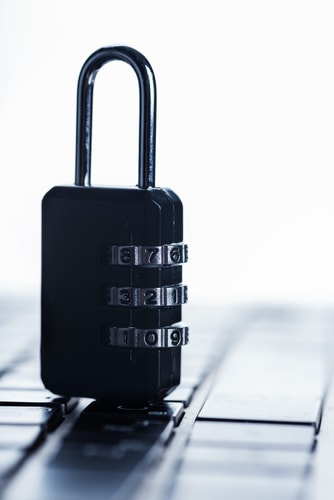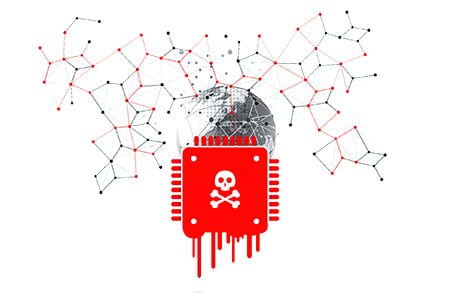Singapore’s Cybersecurity (Amendment) Bill 2024
 On 7 May 2024, Singapore’s Parliament passed the Cybersecurity (Amendment) Bill No. 15/2024, introducing pivotal amendments to the Singapore Cybersecurity Act 2018. The Act previously provided the legislative framework for the management of cybersecurity threats, focusing predominantly on Critical Information Infrastructure (CII) essential computer systems that, if compromised, could disrupt key sectors such as finance, healthcare, and transportation.
On 7 May 2024, Singapore’s Parliament passed the Cybersecurity (Amendment) Bill No. 15/2024, introducing pivotal amendments to the Singapore Cybersecurity Act 2018. The Act previously provided the legislative framework for the management of cybersecurity threats, focusing predominantly on Critical Information Infrastructure (CII) essential computer systems that, if compromised, could disrupt key sectors such as finance, healthcare, and transportation.
Since the Act’s inception, however, the cybersecurity landscape has evolved dramatically. Cloud computing, third-party vendor reliance, and increasingly sophisticated supply chain attacks such as SolarWinds have created new challenges. The Bill addresses these changes by expanding regulatory oversight, updating obligations for CII owners, and introducing new categories of regulated entities. This article delves into the key amendments, their rationale, and the broader implications for cybersecurity regulation in Singapore.
Key Amendments to the Cybersecurity Act
Regulation of Both Physical and Virtual CII Systems
One of the most significant changes introduced by the Bill is the expansion of the Cybersecurity Act’s scope to cover virtual CII systems, including those hosted on cloud platforms. Previously, the Act primarily focused on self-owned CII computer systems located physically in Singapore. However, with the increasing reliance on cloud-based solutions and virtual infrastructures, the Bill clarifies that “computer” and “computer system” encompass both physical and virtual structures.
The amendment also places responsibility on CII owners for the cybersecurity of both physical and virtual systems, ensuring that external systems provided by third-party vendors meet the required cybersecurity standards. This shift recognizes that, in an increasingly interconnected digital environment, many essential services depend on cloud platforms, requiring greater regulatory oversight.
Moreover, the Bill introduces a legal obligation for CII owners to establish enforceable agreements with third-party vendors to ensure that external systems comply with cybersecurity requirements. By making CII owners directly accountable, even for outsourced infrastructure, the amendment closes potential gaps in responsibility.
Regulation of Overseas CII Systems
Another critical amendment extends the scope of the Act to cover CII systems located outside of Singapore. Under the original Act, the Cyber Security Agency of Singapore (CSA) could only designate systems as CII if they were wholly or partially located in Singapore. The Bill enables CSA to regulate overseas CII systems if the owner is based in Singapore, and the system would have been designated as CII had it been located within the country.
This change reflects the global nature of modern cybersecurity risks, where many Singaporean companies operate critical systems abroad. It ensures that the same cybersecurity standards apply to overseas operations of Singaporean companies, protecting the integrity of essential services regardless of geographical location.
 Managing Supply Chain Risks
Managing Supply Chain Risks
The increasing sophistication of supply chain attacks, such as the SolarWinds incident, has revealed critical vulnerabilities in the cybersecurity ecosystem. Previously, under the original Act, Critical Information Infrastructure (CII) owners were only obligated to report cybersecurity incidents that impacted systems directly linked to their CIIs. However, the amended Bill introduces new requirements that extend this obligation to include reporting incidents affecting other computer systems under the CII owner's control, even if these systems are not directly connected to the CII. Additionally, incidents involving external supplier systems that are interconnected with or communicate with the CII must also be reported. This change allows the Cyber Security Agency of Singapore (CSA) to intervene early in cases where compromised systems could pose risks to CII operations. Importantly, the requirement to report incidents affecting external suppliers is contingent upon the CII owner maintaining direct control over the CII, effectively addressing the practical complexities organizations face when outsourcing cybersecurity functions to third-party vendors.
New Categories of Regulated Entities
The Bill introduces three new categories of regulated entities, reflecting the growing complexity of cybersecurity risks. These are:
- Systems of Temporary Cybersecurity Concern (STCC)
High-risk, temporary systems critical to national interests, such as those used during major international events or public health emergencies. For instance, during the COVID-19 pandemic, systems supporting the distribution of vaccines might fall under this category.
- Entities of Special Cybersecurity Interest (ESCI)
Organizations handling sensitive information that could impact national interests. While CIIs are generally public-sector or infrastructure-related, ESCIs could include universities or financial institutions managing sensitive data. For security reasons, the list of ESCIs is not publicly available, but CSA engages with entities before their designation.
- Foundational Digital Infrastructure Service Providers (FDIS)
These are providers of essential digital services such as cloud computing and data centers. Recognizing the importance of these services to the digital economy, the Bill allows CSA to regulate them to ensure cybersecurity standards are upheld.
By broadening the scope of regulated entities, the Bill acknowledges that cybersecurity threats today extend beyond traditional CIIs. ESCI and FDIS providers, in particular, reflect the growing role of digital infrastructure in supporting essential services.
Enhanced Regulatory Powers
The Bill significantly enhances the regulatory powers of the Cyber Security Agency of Singapore (CSA), providing it with new tools to ensure compliance with cybersecurity obligations. It empowers the CSA to inspect CII systems and issue compliance notices to CII owners who fail to meet their responsibilities. Additionally, the CSA can conduct inspections of licensable cybersecurity service providers to verify their adherence to licensing conditions, ensuring they maintain proper standards. The Bill also allows for the extension of compliance deadlines in certain cases, offering flexibility while maintaining the required security levels. Moreover, the introduction of a civil penalty regime adds an additional enforcement mechanism to the existing criminal penalties under the original Act. With the Public Prosecutor's consent, the Commissioner of Cybersecurity can now seek civil penalties for violations of specific provisions, imposing fines that can reach up to 10% of the violator’s annual turnover in Singapore or SGD 500,000, whichever is greater. This dual enforcement mechanism ensures stricter adherence to the Cybersecurity Act and strengthens the overall cybersecurity framework in Singapore.
Public Consultation and Industry Feedback
The Bill underwent public consultation in January 2024, allowing industry stakeholders to provide input on the proposed amendments. This consultation process was instrumental in shaping the final version of the Bill, particularly with respect to balancing regulatory requirements with practical business concerns. One key area of feedback was the need for clarity on the obligations of CII owners using third-party vendors, which the Bill addresses through its focus on contractual obligations.
Industry participants also highlighted the importance of flexibility in enforcement, leading to the introduction of provisions allowing CSA to extend compliance deadlines where necessary. This is particularly important for smaller organizations or those undergoing digital transformation, which may require additional time to comply with new cybersecurity requirements.
 Conclusion
Conclusion
The Cybersecurity (Amendment) Bill 2024 represents a significant evolution of Singapore’s approach to cybersecurity regulation. By expanding the scope of the Act to cover virtual systems, overseas CII, and new categories of regulated entities, the Bill ensures that Singapore’s cybersecurity framework remains robust in the face of emerging threats.
For businesses and providers of essential services, the amendments underscore the importance of staying up to date with regulatory requirements and ensuring that cybersecurity obligations are met, even when relying on third-party vendors. The introduction of new regulatory powers and civil penalties further emphasizes the need for compliance.
Looking ahead, the development of the Digital Infrastructure Act will further strengthen Singapore’s cybersecurity regime, ensuring that the country remains resilient in an increasingly digital world. Organizations should closely monitor these developments and engage with regulators to ensure that they remain compliant while adapting to new cybersecurity challenges.
 عربي
عربي
 English
English Русский
Русский 官话
官话 português
português
 Türk
Türk 









a.jpg&w=120&h=80&zc=1)